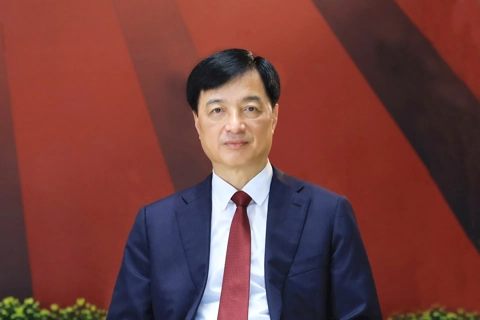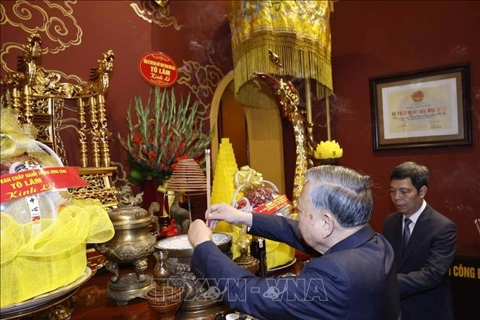Media-business act now to support sustainable growth
The forum bridges the press and private sector, uniting regional voices in a shared vision for a green, innovative, and globally integrated Vietnam.
THE HANOI TIMES — In a bold step toward aligning the power of media with national development goals, the forum “The Press Accompanying Businesses for Sustainable Development in the Nation’s Rising Era” opened in Hanoi on June 5, making the role of journalism as a driver of economic resilience and innovation.
Organized by Kinh te & Do thi (Economic & Urban) Newspaper, the event marks the beginning of a series commemorating the 100th anniversary of Vietnam Revolutionary Press Day (June 21, 1925–2025).
The forum brought together over 200 delegates, including central government officials, business leaders, journalists, and industry experts to discuss how the media can better support sustainable economic growth through digital transformation, innovation, and informed policy dialogue.
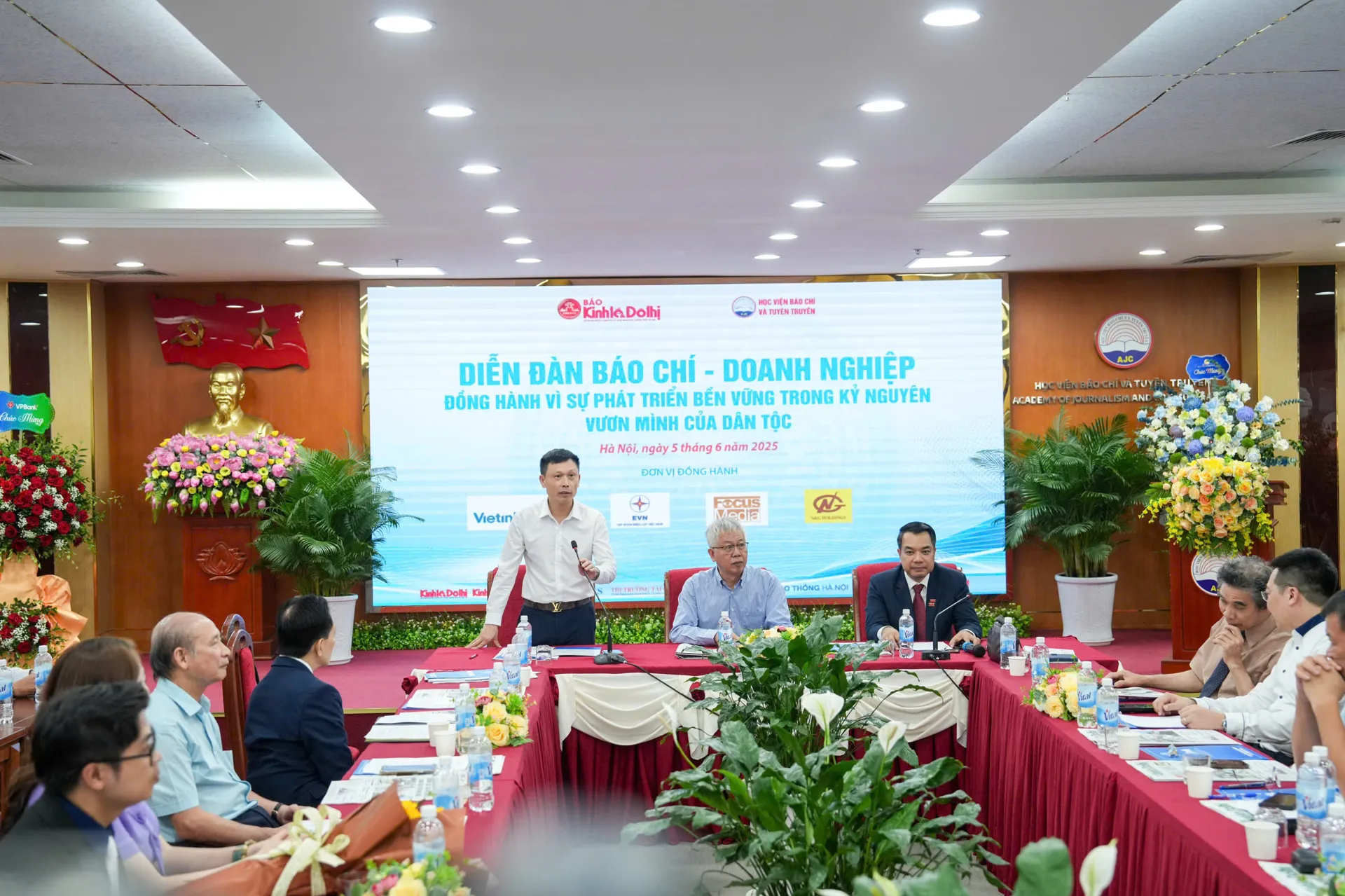
The forum "The Press Accompanying Businesses for Sustainable Development in the Nation's Rising Era" takes place in Hanoi on June 5. Photos: Tung Lam/The Hanoi Times
In his opening remarks, Editor-in-Chief Nguyen Thanh Loi highlighted the press’s evolving responsibility in an era marked by deep structural shifts.
“We are living in a new chapter of national development,” he said. “The press should be a trusted partner to businesses, amplifying their voices, shaping public opinion, and contributing to meaningful policy reform.”
"The press should be a trusted partner to businesses, amplifying their voices, shaping public opinion, and contributing to meaningful policy reform," he stressed.
The editor-in-chief noted that the press must evolve beyond reporting in an era of profound global integration and extensive digital transformation when businesses face relentless pressure to innovate. The press must contribute to brand building, inspire new ways of thinking, and help resolve long-standing bottlenecks in the business environment.
Fostering innovation through journalism
The forum focused on the pillars of sustainable development, such as green real estate, green housing, smart cities, the circular economy, clean technology, and creative tourism. Delegates also explored pressing issues such as digital transformation, crisis communication, and journalistic ethics in the era of artificial intelligence (AI).
Nguyen Van, Vice Chairman of the Hanoi Supporting Industries Business Association (HANSIBA), emphasized the growing importance of the press as small- and medium-sized enterprises (SMEs) grapple with dual pressures: internal structural weaknesses and external economic volatility.
He noted that many SMEs continue to face challenges such as limited access to capital, outdated technology, labor shortages, and inadequate management capacity. In this regard, the Politburo's Resolution No. 68, which positions the private sector for the first time as a key engine of national growth, becomes crucial for the nation's sustainable development.
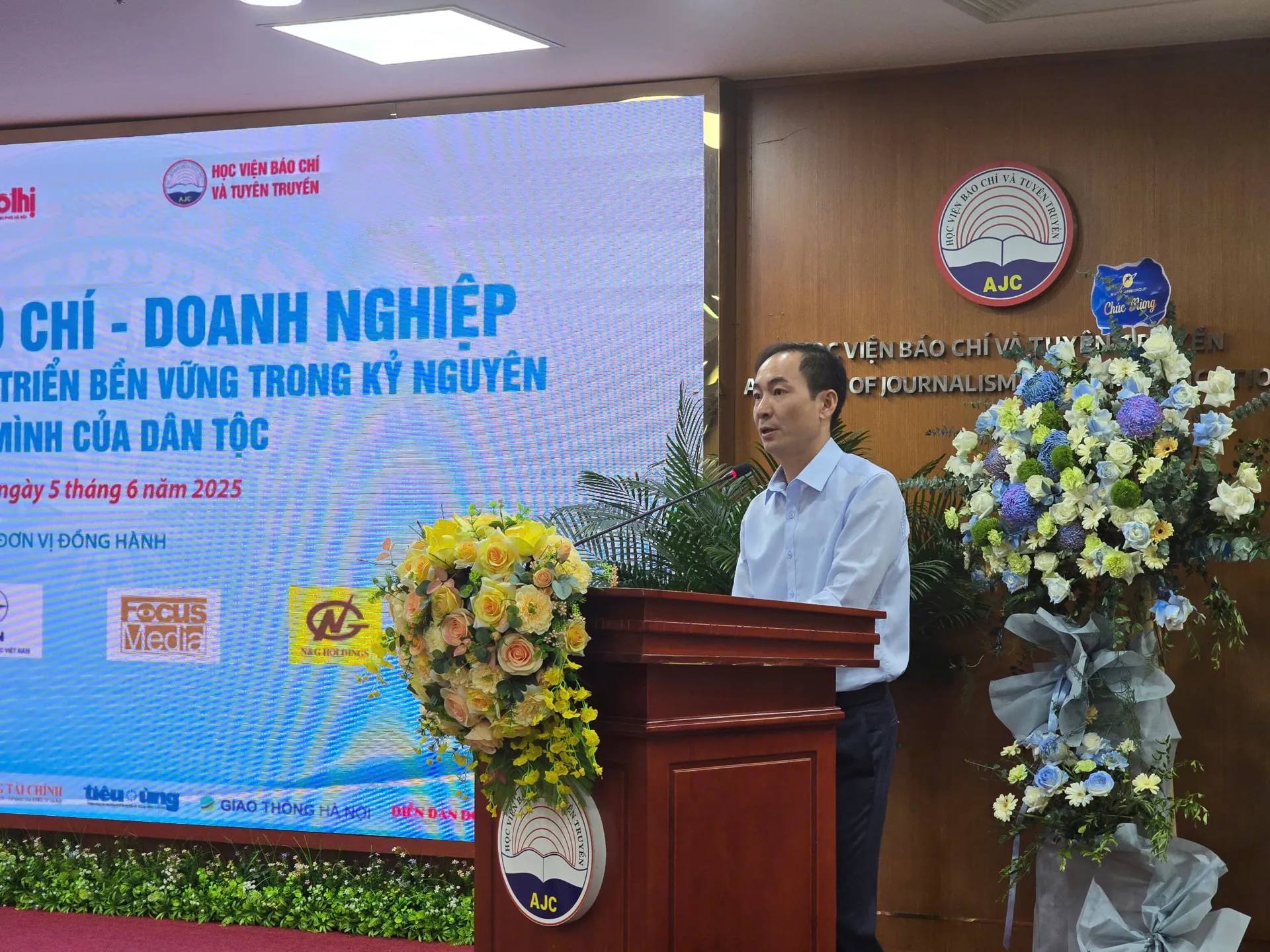
Nguyen Van, Vice Chairman of the Hanoi Supporting Industries Business Association (HANSIBA).
The resolution outlines a more supportive legal framework for businesses, including mechanisms for allocating resources and offering policy incentives. Together with administrative reforms and digitalization efforts, these initiatives are helping SMEs access financing, infrastructure, and technology on a more level playing field.
"In this process, the press does more than deliver information; it helps shape a transparent and sustainable business ecosystem," said Van. "The press serves as a partner in policy dialogue, public engagement, and the cultural transformation of the business landscape."
Dr. To Hoai Nam, Standing Vice Chairman and Secretary-General of the Vietnam Association of Small and Medium Enterprises, reaffirmed the essential role of the press in fostering innovation as a critical factor for maintaining business competitiveness amid the nation's process of global integration.
"Journalism does more than disseminate information, it inspires change, promotes innovation, and encourages the integration of science and technology into core business activities,” said Nam.
He cited real-world examples of Vietnamese companies investing in ISO standards, embracing digital transformation, and developing innovative products with the support of the media. “The media plays a critical role in disseminating new policies, showcasing technologies, and sharing replicable models that inspire the wider business community,” he added.
Nam also highlighted how many Vietnamese news outlets have launched sections dedicated to innovation, digital transformation, and entrepreneurship. These platforms accelerate business access to modern governance and technological tools and act as a communication channel between enterprises, policymakers, and the research community. They foster dialogue, policy feedback, and the exchange of ideas.
AI and the new frontier of journalism
In line with current technological trends, the forum also examined the growing impact of artificial intelligence on journalism and communication. Media expert Nguyen Dinh Thanh noted that AI is becoming more prevalent in newsrooms, from data collection to content generation. However, he cautioned that the notion that AI can replace journalists is overly simplistic.
"AI may accelerate workflows, but the core value of journalism lies in depth, discernment, and emotional resonance — qualities that remain uniquely human," he said.
Thanh emphasized the crucial responsibility of journalists in helping businesses verify and filter AI-generated information. Since AI tools can produce inaccurate or misleading content, journalists are essential in ensuring that only accurate, contextualized, and trustworthy information is disseminated to the public and business sectors.
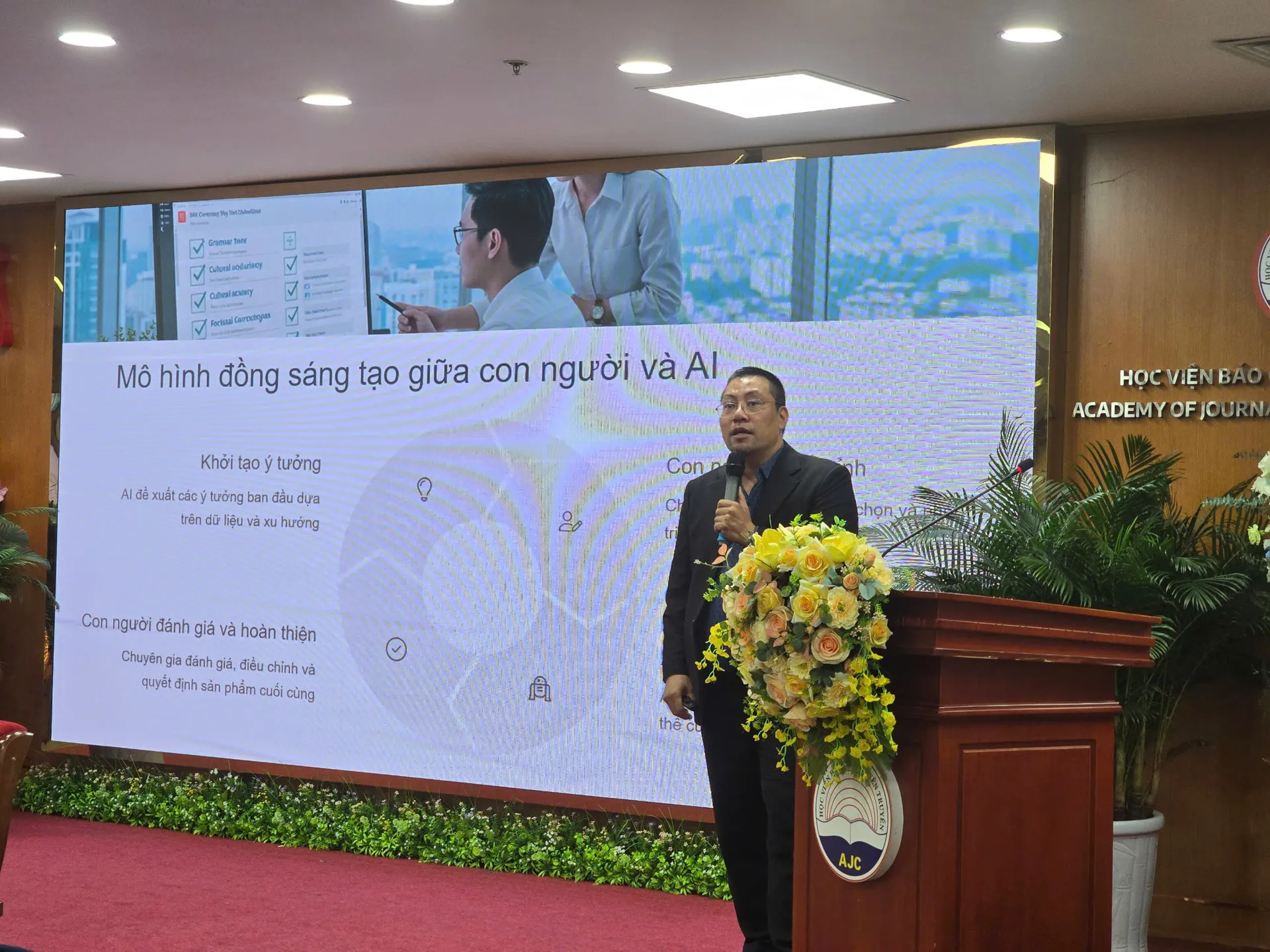
Media expert Nguyen Dinh Thanh shares talks about the role of AI in the press.
“Reporters are no longer channels for information; they are curators, fact-checkers, and gatekeepers in an increasingly complex media landscape,” said Thanh. He urged journalists to embrace AI as a productivity tool while maintaining a focus on creativity, insight, and societal leadership.
In wrapping up the event, Editor-in-Chief Nguyen Thanh Loi emphasized that quality journalism is more important than ever in guiding Vietnam’s path to development.
“Properly curating and communicating each piece of information can turn it into a seed that spreads knowledge, sparks ambition, and fuels innovation for a prosperous Vietnam,” he said.
He called on the media to continue delving into the real-life stories and struggles of businesses, reporting with clarity and empathy while proactively unlocking solutions for sustainable, inclusive growth.
With upcoming editions in Quang Tri and Ho Chi Minh City, the forum serves as a bridge between the press and the private sector. It will unite voices across regions in a shared vision for a green, innovative, and globally integrated Vietnam.







